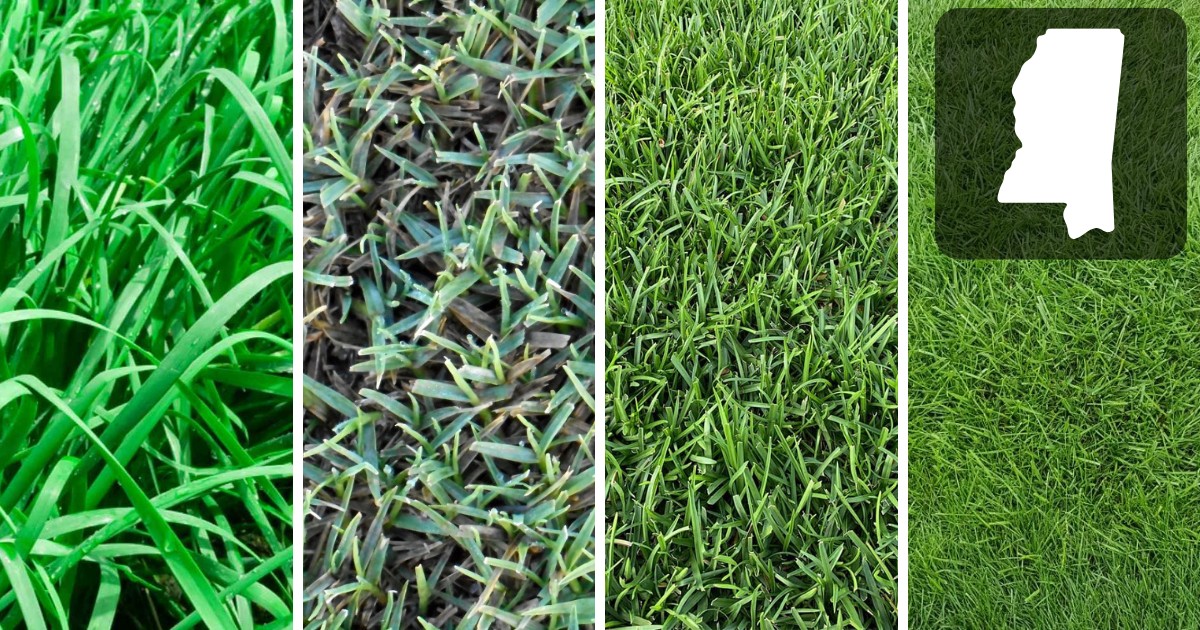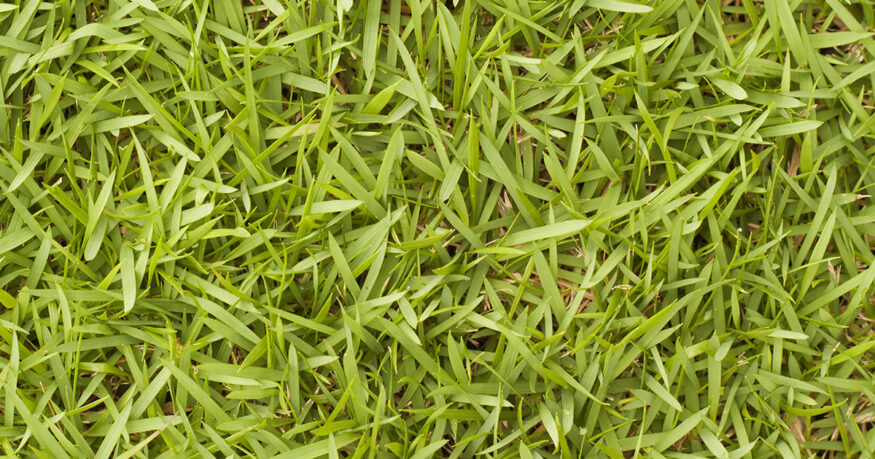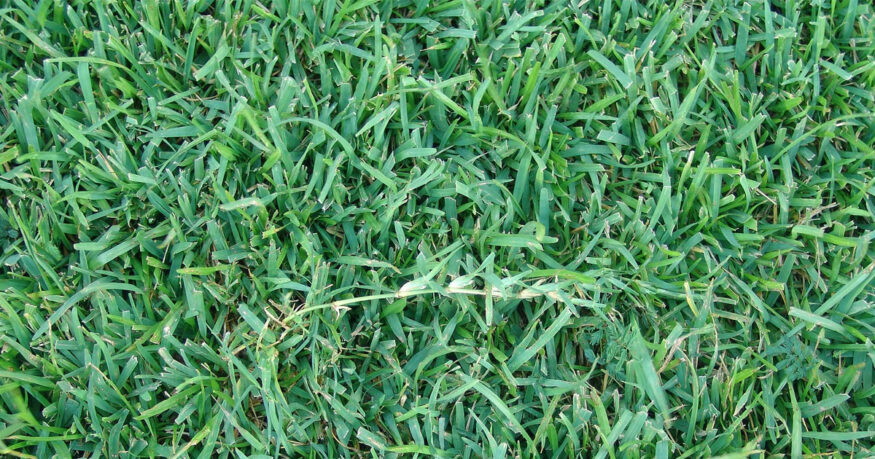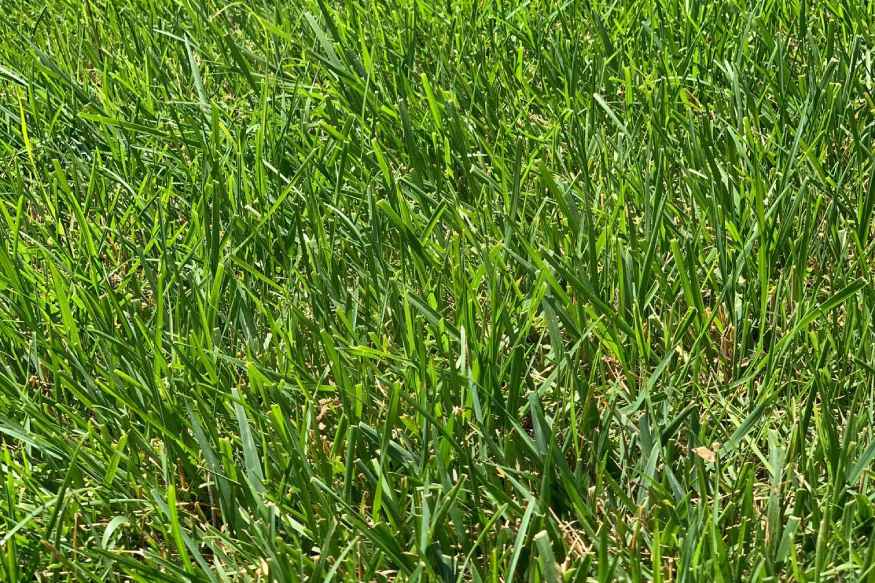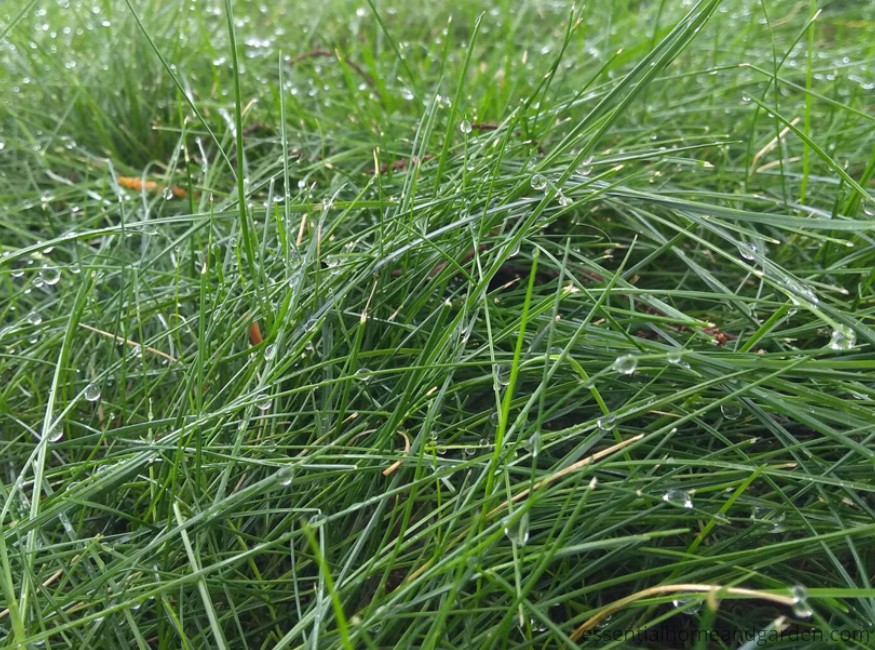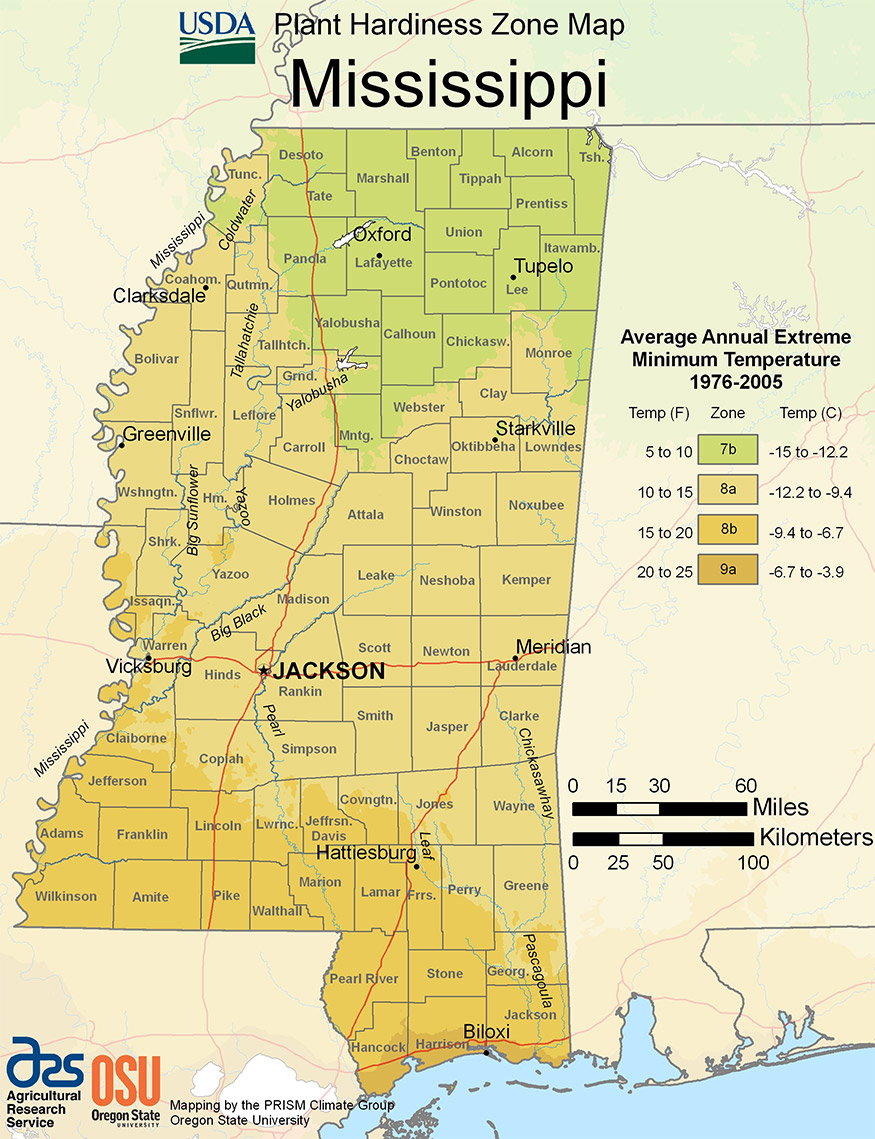Looking to grow a lush, green lawn in Mississippi? You’re in the right place! Mississippi’s unique climate and soil conditions can make it challenging to find the perfect grass seed that will thrive in your yard.
With hot, humid summers and mild winters, you’ll need to select a grass type that can handle the heat and still look great year-round. In this article, we’ll discuss the top grass seed options for Mississippi, including Bermuda grass, centipede grass, turf type fescue, and fine fescue.
Understanding the unique growing conditions and challenges that Mississippi presents is crucial for creating your dream lawn. From fluctuating temperatures to varying soil types, choosing the right grass seed is essential for a healthy, thriving lawn.
We’ll cover each grass type’s benefits and drawbacks, helping you make an informed decision about which seed will work best for your specific needs. So, let’s find the perfect grass seed for your Mississippi lawn!
[ez-toc]
Bermuda Grass
| Also Known As | Bermuda grass, wiregrass; Cynodon dactylon L. |
| Type of Grass | Warm season perennial |
| Optimal Zones | Southern region |
| Root Structure | Deep |
| Winter hardiness | Poor |
| Heat tolerance | Excellent |
| Shade tolerance | Poor |
| Water Requirements | High |
| Drought Tolerance | High |
| Self Repair Capacity | Excellent |
| Overall Maintenance Requirements | Moderate to High |
Why Bermuda Grass is The Most Popular Choice For Mississippi
Bermuda grass flourishes in Mississippi’s warm climate and can handle a ton of foot traffic, making it an excellent choice for your yard. Its deep root system allows for impressive drought tolerance and quick recovery from damage, thanks to a speedy germination process.
Not only is Bermuda grass highly resistant to diseases, but it also requires less maintenance and care than other grass types. To keep your Bermuda grass healthy, mow it to a height of 0.5-1.5 inches every 5-7 days and water it about 1 inch per week, adjusting based on rainfall. Fertilize 2-3 times per year with a balanced fertilizer, and aerate once a year to improve soil health and minimize thatch build-up.
However, Bermuda grass does have some downsides. It can be invasive and challenging to control if it spreads beyond its intended area. Additionally, it requires full sun, meaning it won’t thrive in shady spots. Establishing and maintaining Bermuda grass can also be costly due to its high requirements for soil preparation, seeding rates, and irrigation.
Despite these drawbacks, Bermuda grass remains a popular choice for many Mississippi homeowners, thanks to its resilience and ability to withstand heavy foot traffic.
Looking for the best grass seed for your region?
Our smart lawn plans are designed to work perfectly with your local soil and climate conditions, without any of the toxic stuff.
Use the code EHG20 for an instant $20 discount!
- Personalized lawn care: Custom lawn plans based on soil analysis, climate data, and your specific lawn needs.
- Convenience with a conscience: Products that are not only easy to use but also safe for you, your pets, and the planet.
- Science-backed formulas: Bio-based formulas contain effective, natural ingredients like seaweed, molasses, and iron.
- Expert support: Get one-on-one guidance from a real person and rest easy with Sunday's satisfaction guarantee.
Centipede Grass
| Also Known As | Lazy man’s grass; Eremochloa ophiuroides |
| Type of Grass | Warm season perennial |
| Optimal Zones | 7 – 10, South Eastern US; Hawaii |
| Root Structure | Shallow |
| Winter hardiness | Very poor |
| Heat tolerance | Excellent |
| Shade tolerance | Fair |
| Water Requirements | Moderate to High |
| Drought Tolerance | Moderate to High |
| Self Repair Capacity | Poor |
| Overall Maintenance Requirements | Low |
What Makes Centipede Grass A Great Grass For Mississippi
Centipede grass is a fantastic, low-maintenance option for Mississippi lawns, especially in warm, humid climates with acidic soils. Not only is it easy to establish, but its low-fertility and low-water needs make it an affordable choice for homeowners.
Here’s what you can expect with Centipede grass:
- Mowing every 10-14 days to a height of 1.5-2 inches
- Deep watering once per week
- Annual fertilization and aeration
- Shade tolerance, suitable for areas with trees or partial shade
One of the primary benefits of Centipede grass is its drought resistance, thanks to its shallow root system. This means that it can withstand periods of dry weather better than some other grass varieties. Fertilization requirements are also minimal; a single application of a balanced fertilizer with a 3-1-2 or 4-1-2 ratio in late spring or early summer will suffice.
However, there are a few downsides to consider:
- Not tolerant of heavy traffic or compaction
- Slow growth habit might be a disadvantage for those looking for quick results
- May not be well-suited for areas with heavy shade or poorly-drained soils
Despite these drawbacks, Centipede grass remains an excellent option for many Mississippi homeowners seeking a low-maintenance, drought-resistant lawn.
Turf Type Fescue
| Also Known As | Fine fescue, creeping red |
| Type of Grass | Cool-season grass |
| Optimal Zones | Northern and transition zones |
| Root Structure | Deep-rooted |
| Winter Hardiness | Excellent |
| Heat Tolerance | Poor to fair |
| Shade Tolerance | Excellent |
| Water Requirements | Moderate |
| Drought Tolerance | Good |
| Self Repair Capacity | Good |
| Overall Maintenance Requirements | Moderate to high |
Why Turf Type Fescue Grows well in Mississippi
Turf-Type Fescue is a great option for lawns in the northern half of Mississippi, offering versatility and adaptability. Its drought tolerance and partial shade resistance make it suitable for various conditions. For instance, a homeowner in Tupelo could enjoy a low-maintenance lawn that thrives in both sunny and shaded areas while tolerating moderate foot traffic.
The deep root system of Turf-Type Fescue makes it well-suited for the region’s mild summers and cold winters. Its lower maintenance requirements compared to other grass types, such as Bermuda grass, make it an appealing choice for busy homeowners.
However, there are some limitations to consider:
- May not be the best choice for high-traffic or play areas due to wear and tear
- May struggle to survive in southern Mississippi, where summers can be hot and humid
- Can be susceptible to disease, particularly in hot, humid weather, increasing the need for management and care
Despite these limitations, Turf-Type Fescue’s shade tolerance, drought resistance, and overall low maintenance make it a solid choice for homeowners in northern Mississippi.
Fine Fescue
| Also Known As | Hard fescue, strong creeping red fescue, slender creeping red fescue, sheep fescue, chewings fescue; Festuca L. |
| Type of Grass | Cool season perennial |
| Optimal Zones | Northern zones |
| Root Structure | Medium |
| Winter hardiness | Excellent |
| Shade tolerance | Excellent |
| Water Requirements | Medium to High |
| Drought Tolerance | Excellent |
| Self Repair Capacity | Limited |
| Overall Maintenance Requirements | Low |
Why Fine FescueIs a Popular Grass seed Choice
Fine Fescue is an attractive option for many homeowners in northern Mississippi due to its suitability for cooler climates, shade tolerance, and low-maintenance requirements. Its drought resistance and deep root system make it a good choice for areas that experience dry spells or have low-fertility soils.
Some benefits of Fine Fescue include:
- Less frequent mowing and watering due to slow growth habit
- Ideal for lawns with partial shade
- Fine texture and rich green color for a visually pleasing landscape
- Effective in erosion control due to deep roots that help stabilize soil
However, there are some downsides to consider:
- Prone to wear and tear, making it less suitable for high-traffic areas or play spaces
- May not be suitable for southern Mississippi regions with hot and humid conditions
- Can take longer to establish than other grass types
If you live in a cooler climate with partial shade and are looking for a low-maintenance, drought-resistant, and attractive grass option, Fine Fescue might be the right choice for your Mississippi lawn.
Mississippi’s Climate And Growing Challenges For Lawns
Climate
You’re well aware that your lawn has to endure Mississippi’s hot, humid climate and potential salt spray exposure, so let’s dive into understanding the best grass types that will thrive in these conditions.
Mississippi humidity can be a significant challenge, but some grass varieties have both drought tolerance and high moisture tolerance, making them well-suited to the state’s climate. When it comes to watering requirements, selecting a grass type that can handle both heavy rainfall and periods of drought will be essential for a healthy lawn.
Additionally, consider the seasonal transitions and how the grass will adapt throughout the year, as well as its shade tolerance, as Mississippi’s climate can provide a mix of sun and shade exposure throughout the day.
Soil: Navigating Mississippi’s Diverse Soil Types for a Healthy Lawn
Mississippi’s soil conditions can be quite variable, with predominantly acidic and low-nutrient profiles. To ensure your lawn flourishes, consider the following strategies:
- Select grass seed varieties suited for alkaline soil, particularly in the Jackson Prairie Belt.
- Maintain a pH balance of 6-7 for most grass types, using lime or sulfur amendments as needed.
- Regularly test your soil to monitor and adjust pH levels.
- Employ erosion control and organic amendments to improve soil fertility and structure.
Dead Zones: Minimizing the Impact on Mississippi’s Groundwater and Soil
The Gulf’s dead zone can have devastating effects on our environment, but with proper lawn care practices, you can help mitigate its impact:
- Water your lawn efficiently to reduce runoff carrying nutrients into the Gulf.
- Choose slow-release fertilizers and follow recommended application rates and timings.
- Incorporate seasonal maintenance such as aeration and dethatching to improve lawn health and prevent erosion.
- Utilize erosion control measures like planting deep-rooted grasses and using groundcovers on slopes.
Pests and Diseases: Proactive Measures for a Healthy Mississippi Lawn
Mississippi’s humid conditions can make your lawn more susceptible to insect infestations and fungal problems. To combat these issues:
- Focus on weed control and select disease-resistant grass seed varieties.
- Inspect your lawn regularly for signs of insect damage or fungal growth, and take action promptly.
- Maintain a proper mowing and watering schedule to discourage pests and diseases.
- Explore organic treatments, such as neem oil, beneficial nematodes, and diatomaceous earth, to control pests without harming the environment.
Looking for the best grass seed for your region?
Our smart lawn plans are designed to work perfectly with your local soil and climate conditions, without any of the toxic stuff.
Use the code EHG20 for an instant $20 discount!
- Personalized lawn care: Custom lawn plans based on soil analysis, climate data, and your specific lawn needs.
- Convenience with a conscience: Products that are not only easy to use but also safe for you, your pets, and the planet.
- Science-backed formulas: Bio-based formulas contain effective, natural ingredients like seaweed, molasses, and iron.
- Expert support: Get one-on-one guidance from a real person and rest easy with Sunday's satisfaction guarantee.
Frequently Asked Questions
What is the best type of grass for Mississippi’s climate?
Mississippi’s warm, humid climate suits Bermuda, Zoysia, Centipede, and St. Augustine grasses. Cool-season grass options are turf-type fescue and fine fescue.
How does Bermuda grass perform in Mississippi?
Bermuda grass thrives in Mississippi, offering high durability and quick recovery from damage.
Is Zoysia grass a good choice for Mississippi lawns?
Yes, Zoysia grass suits Mississippi’s climate, offering drought resistance and a lush appearance.
How does St. Augustine grass fare in Mississippi?
St. Augustine grass is heat and humidity tolerant and good for shady lawns, but requires more water.
What is the most drought-tolerant grass for Mississippi?
Bermuda and Zoysia grasses are the most drought-tolerant grasses for Mississippi lawns.
What type of grass seed should I use for a Mississippi lawn?
Choose Bermuda for sunny areas, Zoysia or Centipede for mixed sun and shade, and St. Augustine for shade.
How often should I water my grass in Mississippi?
Water your Mississippi lawn 1 to 1.5 inches per week, adjusting for weather conditions.
What are the best lawn care tips for Mississippi homeowners?
Choose climate-appropriate grass, water properly, mow regularly, fertilize seasonally, and monitor for pests or diseases.
